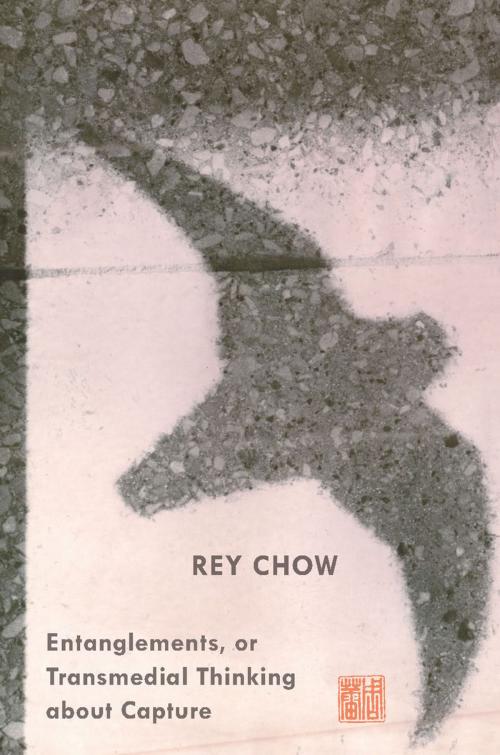Entanglements, or Transmedial Thinking about Capture
Fiction & Literature, Literary Theory & Criticism, Theory| Author: | Rey Chow | ISBN: | 9780822395263 |
| Publisher: | Duke University Press | Publication: | April 11, 2012 |
| Imprint: | Duke University Press Books | Language: | English |
| Author: | Rey Chow |
| ISBN: | 9780822395263 |
| Publisher: | Duke University Press |
| Publication: | April 11, 2012 |
| Imprint: | Duke University Press Books |
| Language: | English |
How might the pornographic be associated with Brecht's and Benjamin's media theories? How are Foucault's and Deleuze's writings on visibilities "postcolonial"? What happens when Rancière's discussions of art are juxtaposed with cultural anthropology? What does a story by Lao She about collecting reveal about political collectivism in modern China? How does Girard's notion of mimetic violence speak to identity politics? How might Arendt's and Derrida's reflections on forgiveness be supplemented by a film by Lee Chang-dong? What can Akira Kurosawa's films about Japan say about American Studies? How is Asia framed transnationally, with what consequences for those who self-identify as Asian?
These questions are dispersively heterologous yet mutually implicated. This paradoxical character of their discursive relations is what Rey Chow intends with the word "entanglements," by which she means, first, an enmeshment of topics: the mediatized image in modernist reflexivity; captivation and identification; victimhood; the place of East Asia in globalized Western academic study. Beyond enmeshment, she asks, can entanglements be phenomena that are not defined by affinity or proximity? Might entanglements be about partition and disparity rather than about conjunction and similarity?
Across medial forms (including theater, film, narrative, digitization, and photographic art), and against more popular trends of declaring things and people to be in flux, Chow proposes conceptual frames that foreground instead aesthetic, ontological, and sentient experiences of force, dominance, submission, fidelity, antagonism, masochism, letting-go, and the attraction to self-annihilation. Boundary, trap, capture, captivation, sacrifice, and mimesis: these riveting terms serve as analytic pressure points in her readings, articulating perversity, madness, and terror to pursuits of freedom.
How might the pornographic be associated with Brecht's and Benjamin's media theories? How are Foucault's and Deleuze's writings on visibilities "postcolonial"? What happens when Rancière's discussions of art are juxtaposed with cultural anthropology? What does a story by Lao She about collecting reveal about political collectivism in modern China? How does Girard's notion of mimetic violence speak to identity politics? How might Arendt's and Derrida's reflections on forgiveness be supplemented by a film by Lee Chang-dong? What can Akira Kurosawa's films about Japan say about American Studies? How is Asia framed transnationally, with what consequences for those who self-identify as Asian?
These questions are dispersively heterologous yet mutually implicated. This paradoxical character of their discursive relations is what Rey Chow intends with the word "entanglements," by which she means, first, an enmeshment of topics: the mediatized image in modernist reflexivity; captivation and identification; victimhood; the place of East Asia in globalized Western academic study. Beyond enmeshment, she asks, can entanglements be phenomena that are not defined by affinity or proximity? Might entanglements be about partition and disparity rather than about conjunction and similarity?
Across medial forms (including theater, film, narrative, digitization, and photographic art), and against more popular trends of declaring things and people to be in flux, Chow proposes conceptual frames that foreground instead aesthetic, ontological, and sentient experiences of force, dominance, submission, fidelity, antagonism, masochism, letting-go, and the attraction to self-annihilation. Boundary, trap, capture, captivation, sacrifice, and mimesis: these riveting terms serve as analytic pressure points in her readings, articulating perversity, madness, and terror to pursuits of freedom.















